Holly Auten | Communications Lead | LLNL Data Science Institute
Materials and Manufacturing on a Mission
Established in 1952 at the height of the Cold War, Lawrence Livermore National Laboratory (LLNL) serves a wide variety of national security missions alongside our primary responsibility of ensuring the safety, security, and reliability of the nation’s nuclear stockpile. By staying at the forefront of the science and technology required to meet these challenges, we have enabled a broad range of scientific discoveries such as accelerating drug development, anticipating the impacts of climate change, and achieving fusion ignition in a laboratory. Our researchers are opening up new frontiers in astrophysics, advanced manufacturing, high-energy-density science, nuclear physics, and computer science, to name just a few.
Materials science and engineering R&D are central to LLNL’s mission, and the application space is vast: understanding how materials age, investigating material performance under extreme conditions, extending material lifetimes, optimizing feedstocks, synthesizing new materials, improving and automating manufacturing processes, developing additive manufacturing (AM) and nanoprinting capabilities, and much more. Responding to the past decade’s rise of artificial intelligence and machine learning (ML)—and given the tremendous amounts of data our unique experimental facilities generate every day—we have incorporated data science technologies into these R&D efforts.
Computer vision techniques are automated tasks that enable computers to analyze digital images and highlight specific regions of interest. In these scanning electron microscopy images, researchers are looking for ML-predicted features (shown in red) in high-performance (left) and low-performance (right) materials.
“We’re excited about our relationship with MDS-Rely, not only because we can tap into a wider circle of research and use cases, but also because we can provide students with exposure to LLNL via internship opportunities and our unique datasets.”
–Brian Giera, director of LLNL’s Data Science Institute
LLNL’s track record in materials, manufacturing, and related domains is possible only because of our culture of Team Science, which brings together researchers from different disciplines to solve mission-relevant problems. LLNL’s Data Science Institute (DSI) was founded in 2018 to support this integrated approach.
“The sum is greater than the parts when multiple areas of expertise are combined and researchers are empowered to innovate. I witness this every day as project teams strive to create novel materials for mission-driven applications and to understand material properties and performance.”
–Manyalibo Matthews, leader of LLNL’s Materials Science Division
For instance, materials scientists and ML experts are working together to optimize a material’s synthesis process with neural networks, while another team has developed a supervised ML algorithm to monitor laser powder bed fusion AM. Furthermore, ML interatomic models have recovered structure, dynamics, and other characteristics of materials under extreme conditions. Yet another team is using digital twins to simulate the advanced manufacturing pipeline, speeding up development time and reducing the costs and risks associated with using real equipment and materials.
Digital twins are virtual representations of physical systems, combining physics-based and data-driven models. A digital twin (right) can be compared to its physical counterpart (left); the resulting data can be fed back into the manufacturing pipeline.
Materials science and engineering are tightly integrated with data science at LLNL. There’s a huge spectrum of opportunities to explore at the confluence of these fields.
–Chris Spadaccini, leader of LLNL’s Materials Engineering Division
To encourage collaboration, many aspects of this work are publicly available. Through the DSI’s Open Data Initiative, students and researchers can access datasets generated from LLNL experiments, such as x-ray computed tomography data of AM octet lattice structures and a labeled video dataset for two-photon lithography AM. Additionally, LLNL launched the AI Innovation Incubator (AI3) in 2021 to nurture external collaborations and expand AI capabilities at scale. One AI3 initiative is an AI-driven testing platform in development at the Advanced Manufacturing Laboratory, which is part of our open campus where academic and industry partners can work side-by-side with LLNL staff.
Watch these videos to learn more about some of our related projects: Building Better Materials with Data Science (4:35) and Understanding Materials Behavior with Data Science (3:35).
This work was performed under the auspices of the U.S. Department of Energy by Lawrence Livermore National Laboratory under Contract DE-AC52-07NA27344. LLNL-WEB-850067

